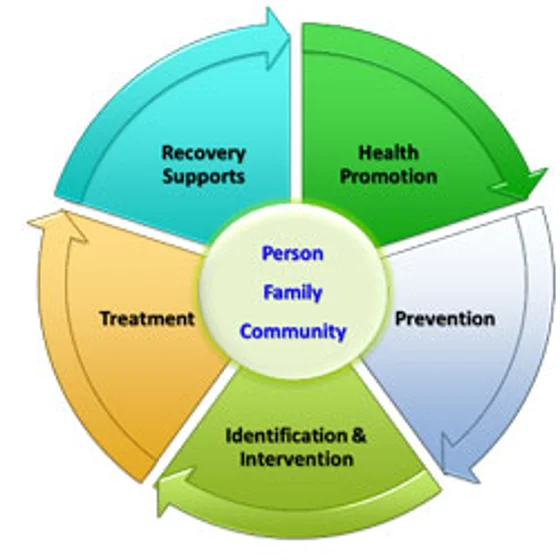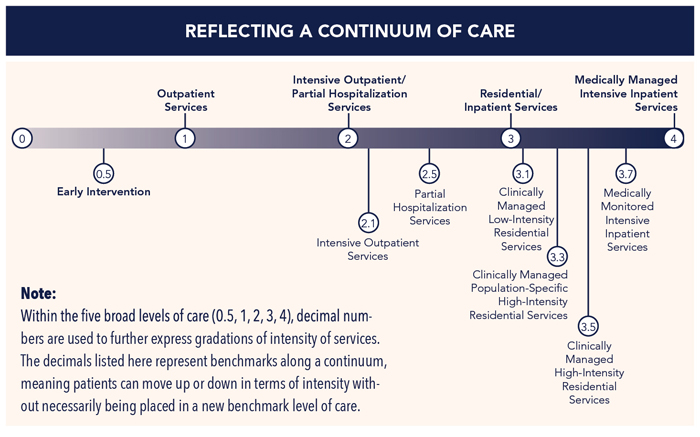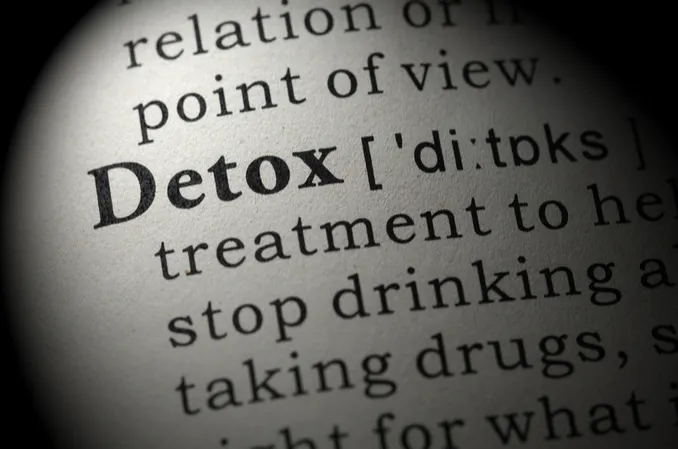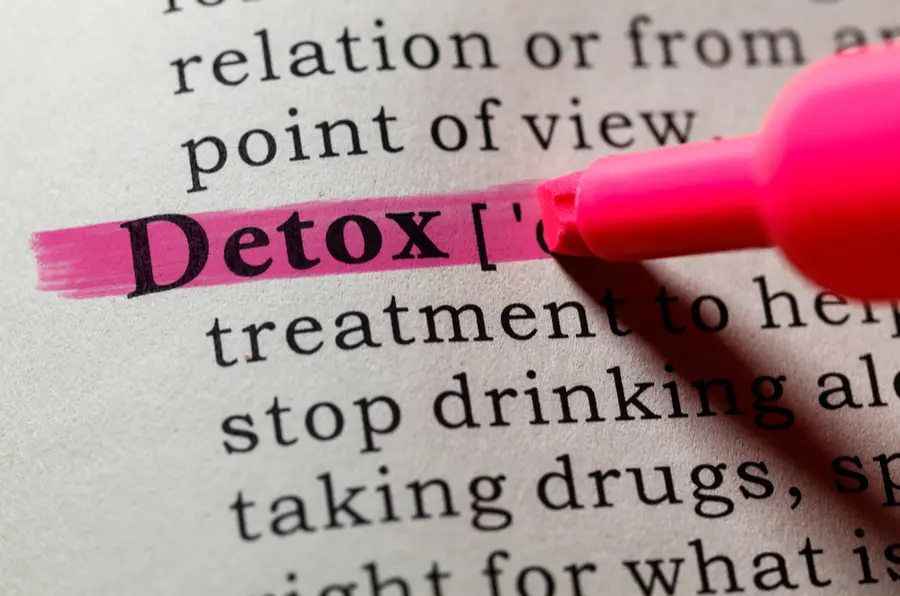A Step-Down Program for Success
Table of Contents
- A Step-Down Program for Success
- What Is A Continuum of Care Facility?
- What Exactly Is The Continuum of Care?
- Levels of Care: Intervention
- Detox
- Residential Treatment
- Partial Hospitalization Program (PHP)
- Intensive Outpatient Program (IOP)
- Outpatient Treatment
- Aftercare Programs
- Treating Co-Occurring Disorders
- Finding the Right Treatment Options
When people think of addiction rehab or treatment, a typical 30-day program in an addiction treatment facility or hospital is usually what comes to mind. This often takes form in the mental image of a locked-down or institutionalized environment, completely shut off from the outside world.
Unfortunately, this visual is reinforced time and again by movies and television, consequently failing to accurately portray the true nature of rehabilitation services.
In reality, a traditional 28-day residential care program of addiction treatment is quite flexible in the way it may look. After all, every individual has unique needs when it comes to addiction treatment. Thus, when someone seeks out treatment at a rehab facility, they will generally work with their care provider to choose from the generally accepted 7 levels of care in finding a level that best fits their situation.
This approach to addiction treatment is called the Continuum of Care (CoC), and it was designed to ensure that patients get sufficient and appropriate care upon joining a rehabilitation program. Furthermore, it allows them to smoothly transition from higher to lower (or vice versa) levels of treatment based on the severity of their condition.
What Is A Continuum of Care Facility?

A Continuum of Care Facility might refer to a physical rehab hospital, a substance abuse treatment organization, or any other care facility such as assisted living and nursing homes. In the context of addiction treatment, a Continuum of Care Facility means a substance abuse rehabilitation or treatment center that offers different levels of care. These typically follow a step-down process in treating addiction.
What Exactly Is The Continuum of Care?
“Continuum of Care” (CoC) refers to a system of addiction treatment. This system typically involves an individual or client entering into treatment at a level or stage appropriate to their recovery care needs. Upon successful completion of this initial level, individuals will typically move on to a lower level; in the event that treatment is not effective, individuals will be advised to move on to a higher level of care.
A successful CoC involves the efficient and timely transfer of the patient, patients’ records, and treatment principle(s) across all or some of the generally accepted seven levels of care.
- Interventions.
- Detox.
- Residential Treatment.
- Partial Hospitalization Program (PHP).
- Intensive Outpatient Program (IOP).
- Outpatient Treatment.
- Aftercare Programs.

Learn more about the ASAM levels of care (Continuum of Care).
Levels of Care: Intervention
The intervention stage typically entails addressing an individual’s dependency on addictive substances and taking the first steps in finding addiction treatment options for them.
The intervention level can be split into two phases: early intervention and initial intervention. Early Intervention is the first step in the CoC and is usually a precursor to treatment. Initial Intervention, on the other hand, is the process of identifying the addiction and putting in place measures to enroll an individual in a treatment facility.
Early Intervention
Early intervention services are designed to help adolescents or adults at risk of addiction who have yet to display symptoms that would warrant admission to a rehabilitation center.
In most cases, the early intervention process involves eradicating the risk factors that incline the patient towards substance abuse. It also will usually entail educating them about the adverse effects of substance abuse.
The length of the early intervention phase is determined by the patient’s understanding of the dangers of drug abuse. Furthermore, the individual may be observed for behavioral patterns that reflect their detachment from an interest in substance abuse.
During the early intervention phase, these individuals are closely observed to determine whether a higher level of care is required.
Initial Intervention
Once it has been assessed that an individual is engaging in addictive habits, the initial intervention stage can proceed. In case of emergency intervention, enrollment might not occur until after the patient has gone through the second stage detox and withdrawal. Normally, the detox center and the treatment facility are connected or have a relationship that facilitates a complete CoC.
If this initial intervention occurs before a full drug or alcohol abuse disorder arises, it might be possible, via preventive measures, to control substance abuse and remove the need for a complete 7 stage CoC. Otherwise, these individuals will proceed to the next level in the Continuum of Care.
Detox

If an individual is already addicted to drugs, a medically supervised detox process may be the first necessary phase in the CoC. The medical detox process provides a safe and constantly monitored environment in which patients can be gradually separated from an abused substance.
Often, many individuals attempt to detox on their own, without professional assistance. Unfortunately, this is rarely effective, and can even prove fatal in extreme cases.
Certain substances, including benzodiazepines (prescription anti-anxiety drugs) and alcohol, can lead to the development of severe forms of substance withdrawal symptoms. Other substances might lead to symptoms that, while not fatal, can be extremely uncomfortable and difficult to endure. In these cases, some detox programs will provide certain medications designed to alleviate or stop these symptoms from occurring. They may also help reduce cravings for alcohol or drug use.
Thus, for individuals struggling with these specific substance use disorders, seeking out treatment centers with detox programs that are designed to help prevent and manage withdrawal symptoms is highly recommended, since their anticipated level of care for detox will be higher than for clients without significant withdrawals.
Furthermore, research has shown that patients who undergo medically supervised detox programs, rather than attempt to do so on their own, are more likely to succeed and maintain long-term abstinence.
How Long Does the Detox Process Last?
The duration of an individual’s detoxification period will vary depending on how severe their addiction is, as well as what substances they are withdrawing from.
For example, if undergoing detox to treat alcohol addiction, these individuals will have to slowly decrease their substance use, rather than just stop drinking altogether. This means they will likely require a longer stay at a treatment facility than an individual who is not being treated for alcohol abuse.
Residential Treatment
Residential Treatment, also called Inpatient Treatment, is a program where the patient remains in the treatment facility 24 hours a day, gets intensive treatment at least 4 hours a day, and eats and sleeps in the center. A treatment center that requires its patients to stay overnight for their treatment is called a residential facility, generally speaking, though some partial hospitalization programs may offer this feature as well. Depending on the individual and the result of the initial assessment, the patient may receive treatment for a period of 30 days, 60 days, or 90 days.
Some residential treatment facilities include detox as part of the program while others don’t offer this service. If a person enrolls in a facility that offers detox, he/she will be transferred straight from detox to residential care. However, people attending standalone detox facilities are recommended to attend a residential facility upon discharge.
Residential treatment is the most highly structured of the levels of care beyond detox, and it includes group and individual therapy as well as alcohol and drug educational sessions. Some centers provide medication management while others offer medication-free treatment or a combination of both.
The various aspects of the inpatient treatment might include:
- Individual and group counseling.
- Nutritional counseling.
- Structured physical activities.
- Holistic approaches such as acupuncture, neurofeedback, and yoga.
- Stress reduction.
- Vocational training.
- Social skill training.
- Relapse prevention support.
- 12-step recovery programs.
- Educational services.
Residential treatment facilities offer a multidisciplinary approach to addiction recovery and prepare the patient for the next levels of care.
Partial Hospitalization Program (PHP)
Partial Hospitalization Programs (PHPs) provide a balance between the 24/7 care offered in residential treatment centers and the semi-independence of IOPs. A PHP schedule offers patients who may relapse during the day a chance to recover in a supportive living environment at night.
Partial Hospitalization Programs provide individuals with the medical assistance they may require to gradually develop a sense of autonomy, through promoting critical skills required for one to lead a drug-free life.
Who Can Benefit from Partial Hospitalization?
PHPs typically best serve very specific individuals who may be struggling with alcohol or drug addiction. When it comes to these programs, the right candidate should have:
- Already completed medical detoxification and/or residential care.
- Reasonable expectations for improvement.
- The capacity to participate in therapy.
- A solid support system in the community or at home.
For people struggling with substance abuse problems, a PHP is recommended for medical detox and intensive inpatient care. After all, these programs typically provide on-site recovery housing, as well as access to staff around the clock. For the majority of patients, a PHP is a vital step toward getting back to normal life and independent living.
During the day, individuals will work on their recovery in a clinical, therapeutic environment. Behavioral therapies (i.e., cognitive behavioral therapy) may be administered as a means of addressing the underlying cause of substance use disorders. During the night, individuals will move to a supportive living environment (such as a sober living residence) to continue recovering.
Usually, participants in a Partial Hospitalization Program will complete at least 18 hours of treatment every week, over 4-7 days a week. While addiction treatment program schedules may vary, during this time, clients will typically have access to:
- Doctors, psychiatrists, and nurses around the clock.
- Nutrition and fitness oversight.
- Sober living accommodations.
- Medication management plans.
- 12-step principles.
- Daily group therapy, such as peer and specialty groups.
- Individual therapy or counseling sessions.
- Aftercare planning and educational resources on how to prevent relapse.
Intensive Outpatient Program (IOP)
Intensive Outpatient Programs (also known as Intensive Outpatient Treatment or IOP) are major treatment programs in CoC. They are generally for patients who do not require a medically assisted detox as a part of their recovery from addiction. Rather, they are designed to help individuals continue with their recovery process following the successful initial treatment of their substance use disorder.
IOP helps the patients to begin rebuilding their private lives and their relationships with family members and loved ones, whilst maintaining sobriety. Unlike with inpatient treatment programs, IOP participants live at home while taking part in the program. Intensive outpatient programs allow individuals to start building a foundation for long-term drug-free living, and learn how to live an independent life free from substance use.
Although IOP is not a live-in treatment plan, it still requires a serious time commitment. Sessions are often scheduled at least three days per week and last about 3 hours a day. The main focus of this program is to prevent relapse. Of course, there are other objectives, including:
- Achieving and maintaining sobriety.
- Helping patients to develop a support network.
- Addressing the issues that lead to alcohol or drug abuse.
- Identifying mental health conditions or psychological issues.
- Implementing positive behavior as well as lifestyle changes.
- Improving coping skills and helping individuals develop self-therapeutic techniques.
Outpatient Treatment
Outpatient care is a type of drug and alcohol addiction treatment program that, like IOPs, does not require clients to live at a treatment facility. This program can take the form of partial hospitalization, 12-step meetings, or a combination of both methods for maintaining sobriety with adequate sober support. Outpatient or ‘OP treatment’ as it is commonly called, can come in the form of addiction OP, mental health OP, or a combination of both that offers dual diagnosis coverage.
Outpatient care treatment options tend to be more affordable compared to residential programs, and are best suited for people who cannot take leave from personal duties or work. Normally, individuals will step down to this form of treatment after completing an inpatient or intensive outpatient program.
Upon beginning this level of care, individuals can acquire skills to help prevent relapse, and learn how to stay sober without external support. During outpatient rehab, an individual may even take part in support groups designed to combat alcohol and drug use. These may include popular 12-Step Programs that encourage abstinence, such as Alcoholics Anonymous (AA) or Narcotics Anonymous (NA).
Research shows that individuals who receive this program as part of CoC are highly likely to recover and remain sober for over 2 years after the program is completed. When combined with other recovery methods, rather than used as a single treatment option, these numbers can improve.
Aftercare Programs
Once an individual has successfully completed their initial treatment for their alcohol or drug addiction, they can return to their daily life. However, this does not mean that the CoC is complete; rather, they are beginning a less-structured stage in their recovery process.
Of course, this re-introduction to independent living and self-care can present numerous challenges. It is not uncommon for individuals to succumb to this stress, relapsing back to previous habits of alcohol and drug abuse.
Addiction recovery requires continuous management; after all, it is considered a chronic disease. This is where aftercare programs come in handy, as they are post-treatment support systems designed to promote proper management of a person’s life and the difficult circumstances they may often have to face throughout it.
Generally, aftercare programs function in commitment to the CoC. They not only aim to help the patient recover but to maintain a life free of addictive behaviors and/or substances. These programs often include:
- Continued involvement in 12 steps or other, similar programs.
- Programs that reward continued abstinence or contingency management (more information on contingency management methods can be found here).
- Telephone follow-up meetings or other motivational interviewing.
- Self-monitoring programs.
Treating Co-Occurring Disorders
Within the CoC, there is an increasing level of recognition that substance abuse and mental health disorders often go hand-in-hand. When it comes to individuals struggling with alcohol addiction and/or drug abuse problems, it is not uncommon for them to have co-occurring conditions such as depression or anxiety.
Other disorders, such as bipolar disorder or post-traumatic stress disorder (PTSD), have also been increasingly linked to problematic alcohol and drug use. This is because these disorders often cause intense and difficult-to-manage feelings, which may lead individuals to self-medicate through substance use.
Thus, when determining the right level of care for individuals who are dealing with these co-occurring disorders, effective treatment options will typically include some form of therapy, whether this be some form of behavioral therapy, family therapy, individual therapy, or otherwise.
In fact, many treatment providers have begun utilizing cognitive behavioral therapy techniques in their approach to managing simultaneous substance abuse and mental health conditions.
Finding the Right Treatment Options
If you or a loved one is struggling with addiction and are ready to receive treatment, know you are making the right choice. Of course, here at Find Addiction Rehabs, we understand that the process of finding effective treatment options can be a difficult and tedious process. But that’s why we’re here!
With our hotline being available 24/7, our team of representatives are always ready to help identify your personal care needs, and connect you with treatment providers that are dedicated to providing you with the quality care and commitment you deserve.
Whether helping our clients understand what kind of coverage their insurance providers offer for addiction rehab services, finding treatment centers that work with their budget, location, and personal life, or simply just helping to connect them to addiction recovery resources, our representatives are dedicated to consistently providing quality assistance.
Taking that first step can be scary, but you don’t have to do it alone. Call us today, and get started on your journey to achieving a happier, healthier, and more fulfilling life!
Deborah Tayloe is a freelance writer specializing in health and sciences. Deborah earned a B.S.Ed. in Secondary Education/English, accompanied by a Spanish minor. Her writing expertise allows her to craft engaging, impactful articles to help people be well.
In addition, she holds a fully accredited Certificate of Natural Medicine and is a certified Herbalist. Through her understanding of complementary medicine, Deborah helps medical professionals give people the information they need to embrace natural approaches to wellness.
When she’s not working, Deborah trains for 5K races and advocates for animal rights.


